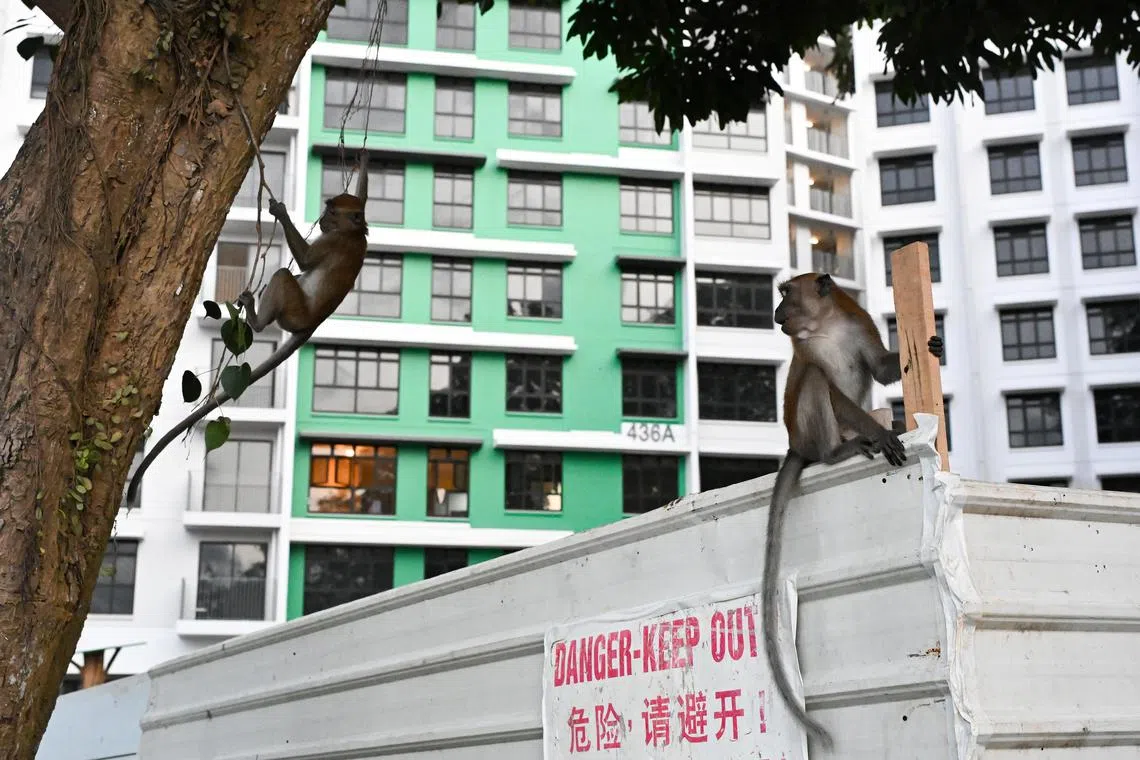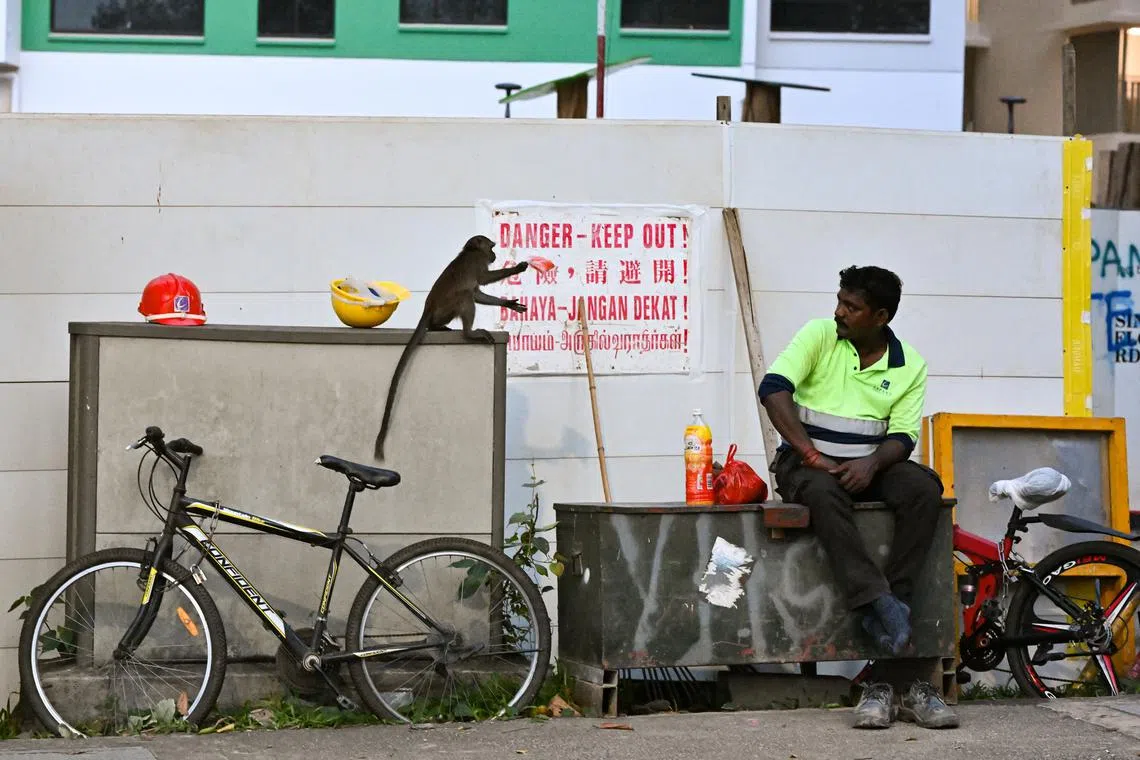Monkey sightings worry new BTO residents in Punggol Northshore
Sign up now: Get ST's newsletters delivered to your inbox
SINGAPORE – A Punggol resident, Ms Pang, and her husband were walking to their new Build-To-Order (BTO) flat in Northshore Drive earlier this month when they encountered a troop of about a dozen monkeys on the park connector.
Two of the more brazen animals attempted to snatch an iced lemon tea drink from her hands.
The 25-year-old property agent, who declined to give her full name, managed to escape unscathed, but she and other residents of the recently completed Punggol Point Crown BTO project told The Straits Times that they are growing increasingly worried about the presence of monkeys in the estate.
The residents, who began collecting the keys to their flats from April, said they have seen dozens of monkeys belonging to the long-tailed macaque species in and around the estate.
Videos posted on resident chat groups show groups of the monkeys climbing up the facade of an HDB block and eating at the void deck.
The monkey sightings are prompting some residents to install mesh screens in their homes, afraid that the animals will turn into home invaders.
“It’s only a matter of time before the monkeys attempt to climb into people’s homes in search of food, especially those on the lower floors,” said Ms Pang, who will be moving into her four-room flat in October once renovation is completed.
When asked, the National Parks Board (NParks) said it is aware of sightings of a troop of long-tailed macaques around Punggol Northshore. It has received 38 reports on the animals in the Punggol area as at Sept 18.
The macaques are forest fringe creatures that move between forest patches in search of food and territory, and have been observed to travel through Lorong Halus Wetland, Coney Island Park and the remaining forest patches around the Punggol area, said NParks.
When ST visited Punggol Point Crown on Sept 17, it saw around a dozen monkeys climbing on top of the construction hoarding at an unopened playground.
A resident, who wanted to be known only as Mr See, said he once saw around 50 monkeys blocking the path on the park connector near Coney Island Park when he was taking a walk.
“I made a U-turn as I was shocked to see so many monkeys,” said the 30-year-old, who moved into his flat in June.

Residents said they have seen dozens of monkeys in and around the estate.
ST PHOTO: LIM YAOHUI
Others such as retail associate Michael Pua, 51, are worried about the monkeys entering their homes.
“I’m concerned the monkeys will climb into my home or get aggressive when I’m walking at the void deck with my six-year-old son,” he said.
The monkeys have also been spotted at the Singapore Institute of Technology’s new campus in New Punggol Road, where students began classes in September. One student said he saw over 10 monkeys just outside a lecture theatre on the ground floor this month.
This is not the first time long-tailed macaques have caused trouble in Punggol. ST reported in July 2023
Some residents are taking measures to keep them from entering their homes.
Ms Pang said she has installed windows in the service yard in her flat, and plans to install stainless steel mesh screens.
Mr Kenneth Gan, who runs Ganmade, a company that installs insect screens, said he has received about 30 inquiries from flat owners in Punggol Northshore about installing these screens to keep monkeys out.
“Quite a number of them have children, so they are concerned about safety,” said the 33-year-old, adding that the majority of his clients opted for the stronger mesh made of stainless steel.

A long-tailed macaque snatching a packet of food from a construction worker outside a construction site in Northshore Drive in Punggol, on Sept 17.
ST PHOTO: LIM YAOHUI
Mr How Choon Beng, NParks’ group director of wildlife management, said the agency is responding to feedback by carrying out monkey guarding – conditioning macaques away from residential areas and towards forested areas – to minimise incursions.
“We are also engaging residents, schools and shopkeepers in the area to keep food items out of sight and to dispose of waste properly,” he added.
Other measures NParks has adopted include ensuring proper waste disposal, and removing fruit trees from areas frequented by humans, said Mr How. The agency is also working to carry out sterilisation as a long-term population control measure.
“We strongly urge members of the public not to feed macaques as it alters their natural foraging behaviour and habituates them to human presence and relying on humans as an easy source of food,” Mr How said.
NParks advisory
If macaques approach you in the open, remain calm and quiet, and do not make any sudden movements or maintain eye contact with them.
Look away and back off slowly. Keep away from the area until they have left.
Macaques have associated plastic bags with presence of food and will try to snatch them when they see these. So keep plastic bags out of the sight of macaques.
Call the 24-hour Animal Response Centre on 1800-476-1600 for wildlife-related issues.


